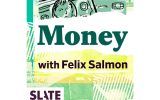A group of top financiers sat in Berlin seven months ago marvelling at how much money they had made during a global health emergency.
As they gathered again this week at the latest instalment of the private equity industry’s SuperReturn conference, the backdrop was fundamentally different.
The massive government stimulus packages and central bank crisis measures that had enabled them to keep companies afloat — and use cheap debt to strike new deals and pay themselves dividends — are a thing of the past.
“This is a time of reckoning for our industry,” said Philipp Freise, the European private equity co-head at KKR, which went on an aggressive dealmaking spree during the pandemic-era boom.
The Federal Reserve and Bank of England both raised rates while the dealmakers were gathering. Listed buyout groups’ share prices have tumbled this year. Investors are struggling to commit cash to new buyout funds after pouring money into the industry last year.
The enormous flood of deals struck at high valuations during the boom of the past two years are at risk of turning into what at least four senior dealmakers privately referred to as a “bad vintage” — the private equity industry’s wine-driven euphemism of choice, which means pension funds and other investors would make less money than they hoped when they committed cash to buyout groups’ funds.
Private equity struck deals worth more than $800bn last year, an estimate from Preqin shows.













